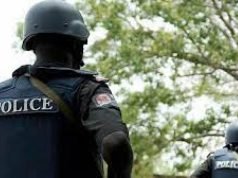 He rode into the corridors of power on the crest of an avowed declaration to undo the damage of the past that was fraught with recklessness and complete desertion of critical sectors of development by successive administrations.
He rode into the corridors of power on the crest of an avowed declaration to undo the damage of the past that was fraught with recklessness and complete desertion of critical sectors of development by successive administrations.
He particularly promised to declare a state of emergency in the education sector that was turned into an electoral ATM by previous governments to buy votes for victory. So, in the estimation of many, the teaching profession was thus turned into a cesspool for recruiting all kinds of political thugs and the dregs of educational failures.
Since his emergence as Chief driver at the Kashim Ibrahim House in Kaduna, Malam Nasir Ahmad el-Rufai, has ruffled many feathers and in the process, attracted an avalanche of both criticisms and commendations. Just as he is surrounded by die-hard protagonists who are ready to follow him blindfolded into any battle field, the former Federal Capital Territory (FCT) Minister equally boasts of antagonists who see him as a political conman that should never be trusted.
In everything el-Rufai does, his traducers are quick to read meaning(s) into his actions. As a man, who is fortitudinous in action no matter whose ox is gored, his enemies have always insisted that people should be wary of his motives. Reputed for his controversial trademark at recapturing the master plan of Abuja when he served as Minister from 2003 to 2007, the then newly sworn-in Governor had early in the life of his administration embarked on demolishing structures built in schools and some health facilities in Zaria, Kaduna and other parts before legal fireworks halted the exercise over the planned demolition of Gbagyi Villa; an area that was originally allocated to the Kaduna Polytechnic.
Against public outcry over the failed free feeding of pupils in the state that gulped N10 billionwithin eight months, Governor el-Rufai only retreated after discovering the impracticability of sustaining this money-guzzling programme without much to show. Known as someone who is no stranger to controversies, el-Rufai is presently up in arms against the Nigeria Labour Congress (NLC) over his planned sack of no fewer than 22,000 primary school teachers who failed to score 75 per cent and above in primary four competency test. Though the Union has vowed to fight to the last man, the former Bureau of Public Enterprises (BPE) Director General, a man never known to kiss the dust in battle, has off-handedly dismissed threats by the Organised Labour. For now, public opinion over the controversial sack seems divided, with both camps in the debate not willing to let go their sails.
As a former teacher in Kaduna state, I am aware that the education sector rot, especially at the basic level, is almost irredeemable. Even before the emergence of the present democracy in 1999, Kaduna, a state known as ‘Centre of Learning,’ had become a gutter for all forms of educational frauds. Through the sector, funds meant for the development of primary schools were diverted by some past administrations to buy votes. Primary education was turned into a platform for inflation of workers’ wage through the ghost workers syndrome in a bid to fleece the State. To make matters worse, acquisition of forged results made it easier for drop-outs to flaunt fake certificates in a bid to secure employments as primary school teachers.
When he assumed office in May 2015, el-Rufai had declared his resolve to revive the declining glory of education in the state. The first wrong step he took was the introduction of the free feeding programme that diverted funds that would have been used to address critical issues of the sector. In a bid to deploy additional teachers at the basic level of education, he ordered in October 2015 that workers in the state’s 23 Local Government Education Departments be re-assigned to primary schools as teachers. Within a twinkling of an eye, nannies, guards, cooks, carpenters and clerks, among others, were turned into Classroom teachers overnight.
If the truth must be told, the number of State primary schools put at over 4,200 is a mere fiction. And it is easy to verify the duplicity of this number. If this number must be taken into consideration, then, each primary school is expected to have an average of nine teachers. Based on the number of primary schools, each of the over 255 electoral wards is expected to have no less than 16 primary schools. Physical inspection of primary schools will indicate that this number is fraudulent and only used to cover up daylight fraud perpetrated by the State government through interim management committees currently managing affairs at the 23 local councils.
Beyond public horror over the teachers’ dismal performance in the competency test, analysts are worried that the government’s obvious grand-standing in this entire drama has been unnecessary and needless. While global standards in education continue to rise, many are wondering why the government is desperately hinging teachers’ qualification and competence on just the ability to pass primary four test. When has passing Primary Four test becomes the yardstick and basic qualification for being a primary school teacher? In exposing the rot as exemplified by the shameful test scripts of these teachers, why has the government refused to come clean by full disclosure and release of the names of teachers whose scripts were displayed on social media and their TRCN numbers? These and many other questions have continued to cast doubt on the sincerity of el-Rufai’s government in sanitising the state’s basic education. What is most important here is to institute a process devoid of politics that would make it impossible to politicise primary education henceforth.
It must be stated here that both el-Rufai and his traducers are agreed on the need to sanitise the system. But the challenge seems to be on how to go about it. Already, the non-involvement of professional bodies like the National Teachers’ Institute (NTI) and the Teacher Registration Council of Nigeria (TRCN) in administering the competency test has cast suspicion on the genuineness of government’s intention, with Senator Shehu Sani alleging that the planned sack is to pave way for el-Rufai to recruit individuals in the cloak of teachers that will serve as electoral officers in 2019.
In the gamut of this entire controversy, Kaduna State government is wobbling in its effort to convince the public that the planned education sector reform is devoid of political motives. There are allegations that names of retired and dead teachers are on the pass list of the competency test. Also, there are claims that the camel has been allowed to pass through the eye of the needle, with some teachers who can’t speak English making the contentious list.
Despite government’s attempt at restating the relevance of its reform expected to sweep away 21,780 primary school teachers and replace them with no fewer than 25,000 fresh ones, all three Senators from the State have surprisingly kicked against the move. However, quite interestingly, majority of the House of Reps members from the State are maintaining studied silence with caution as their watch-word over the matter.
As a way out of the quagmire, there is need to embark on an overall turnaround of the system. First, to avoid politicising the exercise, cleaners, messengers, nannies and carpenters, among others, who were forcefully turned into teachers. el-Rufai should redeploy these carpenters and nannies to their original positions for which they were originally employed based on their qualifications and competence.
Closely tied to the above, focus must be beamed on institutions where fake certificates are sold to desperate candidates. Of a special mention, award of NCE certificates from the Federal College of Education, Zaria, and the Kaduna State College of Education, Gidan Waya, near Kafanchan, should be reviewed in a bid to tackle the problem at the root. I am aware that of series of probes were mounted on these two schools in the past. While much was done to sanitise and smash the certificate syndicate in Kafanchan, little was done in Zaria.
After salvaging the system from the trauma of these stark illiterates posing as teachers, the state government should then invite National Teachers’ Institute (NTI), Teachers Registration Council of Nigeria (TRCN), and Nigerian Union of Teachers (NUT), including other relevant professional bodies, to conduct fresh competency tests for the teachers. Those without relevant teachers’ qualification, but have spent many years, should either be trained or retired. It is criminal to turn a blind eye to qualified teachers roaming the streets, while allowing quacks to toy with the educational future of millions of our children.
Strong allegations abound that why the government reneged on the 60 per cent cut-off mark was the discovery that if that was maintained, it may not be able to weed out many teachers from the southern part where its popularity is waning by the day. And despite the governor’s insistence that his concern is not the next election but the children’s future, analysts are quick to also claim that el-Rufai has his eyes fixed on 2019. Unfortunately for the state government, with the drumbeats for 2019 general polls set to gather momentum in the first quarter of next year, it is becoming increasingly difficult to convince anyone that the planned sack of the teachers is bereft of politics.
Unleashing test scripts written by some of these carpenters, nannies and clerks, among others, on social media platforms only attracts public revulsion that is bereft of strategic thinking. el-Rufai must be ready to walk and meet his traducers midway by marrying both the thesis and anti-thesis of the conversation. Embarking on wholesale sack of these teachers at a go is not necessary in the present time. What we need now is for both government and other critical stakeholders to agree on timelines, appropriate and sufficient, to sanitise a sector that has become a debonair of corruption, instead of a beacon of hope for millions of children.
Musa Simon Reef is the Editor-In-Chief of Forefront, and can be reached via: simonreef927@gmail.com [myad]






